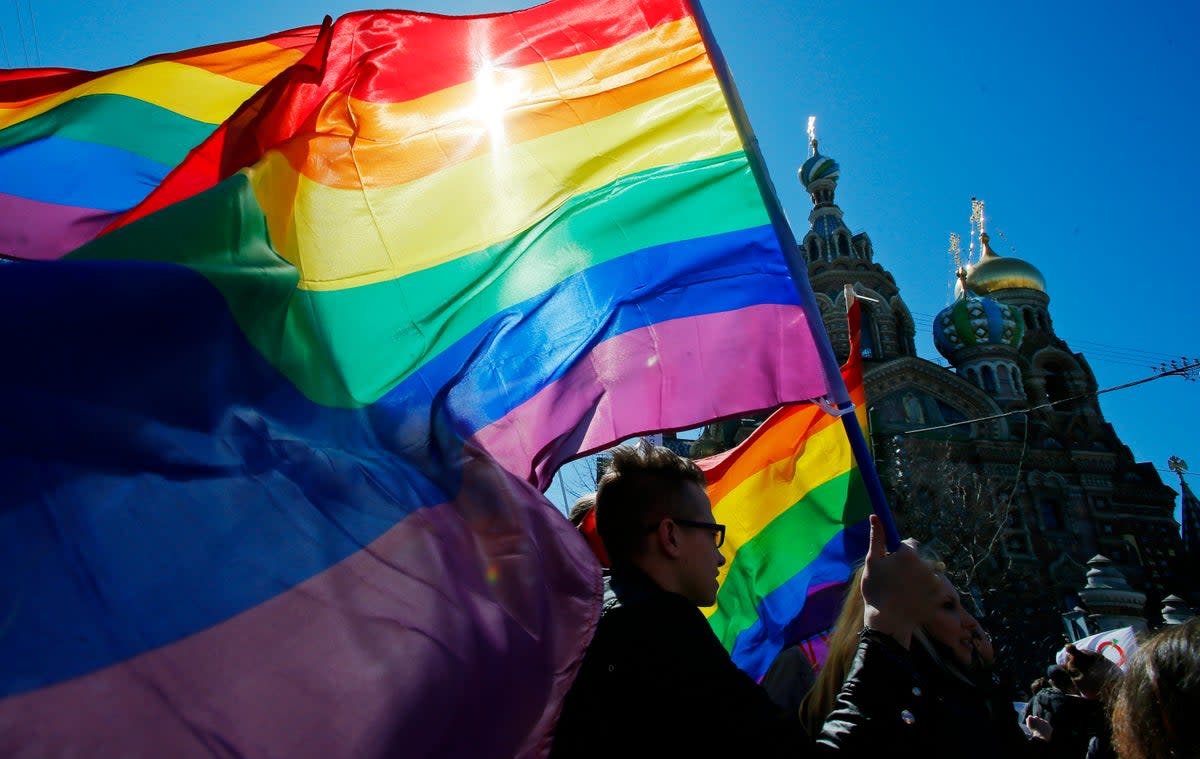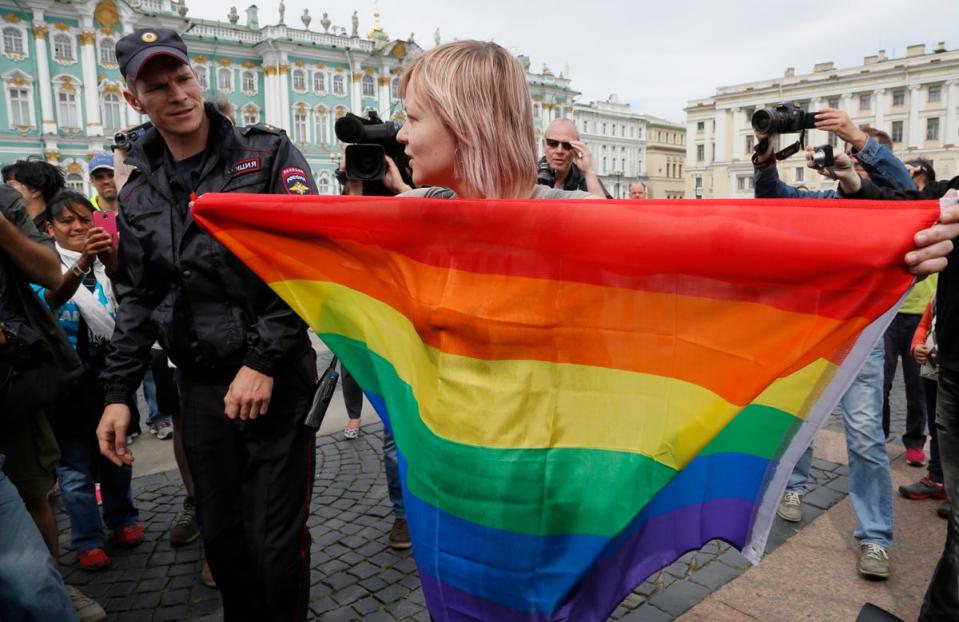Russians arrested as Vladimir Putin launches crackdown on LGBTQ community

Two nightclub employees have been arrested under new laws in Russia as Vladimir Putin launches a crackdown on the LGBT community.
Diana Kamilyanova and Alexander Klimov face 10 years in prison after being detained by masked police officers and accused of ‘aiding and abetting extremist activity’.
Russia’s supreme court has branded the “international LGBTQ public movement” as an extremist organisation.
Critics say the move is aimed at providing Russians with an “enemy within” to consolidate President Putin’s rule, as well as distract from economic and social problems.
Although same-sex relations are not against the law in Russia, the Kremlin has intensified its crackdown on LGBTQ citizens since the start of the war in Ukraine.

Exiled Russian opposition journalist and LGBTQ rights activist Elena Kostyuchenko told Russian-language news outlet Current Time: “The main characteristic of fascism is a mobilised society, that is, a society that is either in a state of war or in a state of preparation for war. And in order to keep society mobilised, external and internal enemies are needed.
“LGBT people are ideal for the role of internal enemies, because we are everywhere, we are just like you, there are enough of us, and at the same time we are different.”
The number of Russians who believe that homosexuals should not have equal rights has risen to 60 per cent, from 19 per cent since 2013, according to a recent survey by the independent Russian Field pollster. Other polls, however, have shown consistently hostile attitudes.
One of the most vocal supporters of the LGBT crackdown is Ekaterina Mizulina, the head of the pro-Putin Safe Internet League, whose activists inform on gay clubs and scour the internet for offending posts.
Mizulina, whose own social media accounts are full of images of hearts and cheery “good morning, everyone!” posts, has called anti-LGBT laws “a serious barrier against the values that are destroying Russia and destroying our identity”.
The Kremlin has previously used the extremist label to prosecute human rights groups, independent media and political opposition, including allies of the now deceased Kremlin critic Alexei Navalny.


